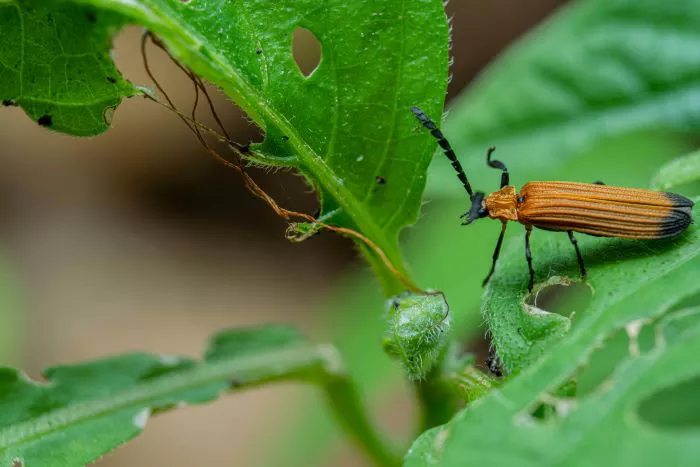A garden is a place of beauty and tranquility but it can quickly turn into a battleground when pests invade. From aphids to slugs these unwanted visitors can wreak havoc on your plants. This article provides professional advice on how to keep pests out of your garden ensuring your plants remain healthy and vibrant.
Understanding Garden Pests
Garden pests come in various forms including insects mollusks and even some mammals. Common insect pests include aphids spider mites whiteflies and caterpillars. Slugs and snails are notorious for damaging leaves and flowers. Rabbits and deer can also pose threats by eating entire plants. Knowing the types of pests that affect your region helps in choosing the right prevention methods.
Planning Your Defense
Preventing pests starts with planning. Choose plants that are less susceptible to pest attacks. Native species often have natural defenses against local pests. When designing your garden layout consider companion planting. Certain plants repel pests or attract beneficial insects that prey on harmful ones. Marigolds basil and mint are examples of plants known to deter pests.
Maintaining Garden Hygiene
Keeping your garden clean reduces the likelihood of pest infestations. Remove dead leaves fallen fruits and other debris where pests can hide. Regularly prune plants to improve air circulation and sunlight penetration which discourages damp conditions favored by pests. Dispose of diseased plant material promptly to prevent the spread of infections.
Using Physical Barriers
Physical barriers create obstacles that pests cannot easily overcome. Fine mesh netting protects crops from flying insects like moths and butterflies whose larvae feed on plants. Floating row covers allow light and water through while keeping pests at bay. Fences and chicken wire prevent larger animals such as rabbits and deer from entering your garden. Copper tape around pots deters slugs and snails as they do not like crossing copper surfaces.
Introducing Beneficial Insects
Beneficial insects play a crucial role in pest control. Ladybugs lacewings and parasitic wasps prey on common garden pests. Attract these helpers by planting flowers that provide nectar and pollen such as dill fennel and yarrow. Avoid using broad-spectrum pesticides that harm both beneficial and harmful insects. Instead opt for targeted treatments that only affect specific pests.
Applying Organic Pesticides
When necessary use organic pesticides that are safer for the environment and beneficial insects. Neem oil insecticidal soap and diatomaceous earth are effective options. Neem oil disrupts insect feeding and reproduction cycles. Insecticidal soap kills soft-bodied insects on contact. Diatomaceous earth consists of fossilized algae that dehydrate pests upon contact. Always follow label instructions for safe application.
Implementing Cultural Practices
Good cultural practices strengthen plants making them more resistant to pests. Water plants at the base rather than overhead to reduce humidity levels that attract pests. Mulch helps retain soil moisture regulates temperature and suppresses weeds that may harbor pests. Rotate crops annually to break pest life cycles and prevent buildup in the soil.
Monitoring and Inspecting
Regular monitoring allows early detection of pest problems before they become severe. Inspect plants weekly looking for signs of damage such as chewed leaves discolored spots or sticky residues. Use a magnifying glass to identify small pests or eggs. Keep a journal noting observations and actions taken. Early intervention increases the chances of successful pest management.
Creating Unfavorable Conditions
Modify your garden environment to make it less appealing to pests. Remove standing water that serves as breeding grounds for mosquitoes. Install birdhouses bat boxes and toad abodes to encourage natural predators of garden pests. Adjust irrigation systems to avoid overwatering which creates moist conditions favored by slugs and snails.
Conclusion
Keeping pests out of your garden requires a combination of preventive measures and proactive strategies. By understanding common garden pests planning your defense maintaining hygiene using physical barriers introducing beneficial insects applying organic pesticides implementing cultural practices monitoring regularly and creating unfavorable conditions you can protect your garden effectively. With consistent effort and attention to detail your garden will flourish free from the threat of destructive pests.


